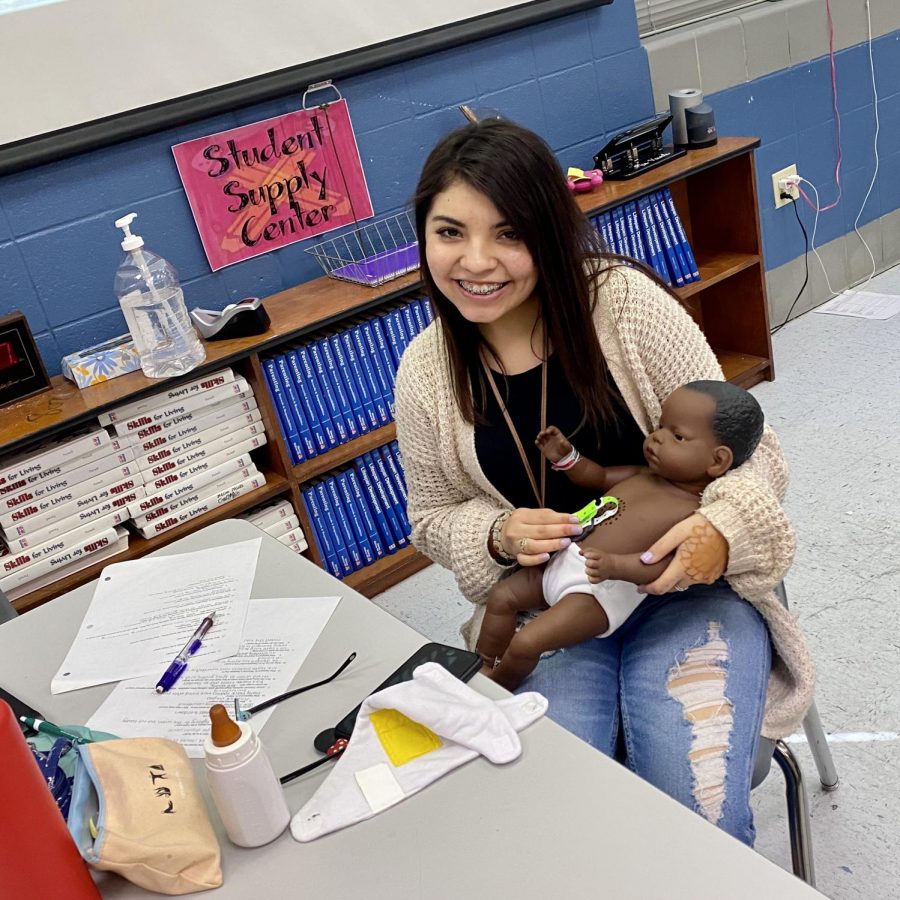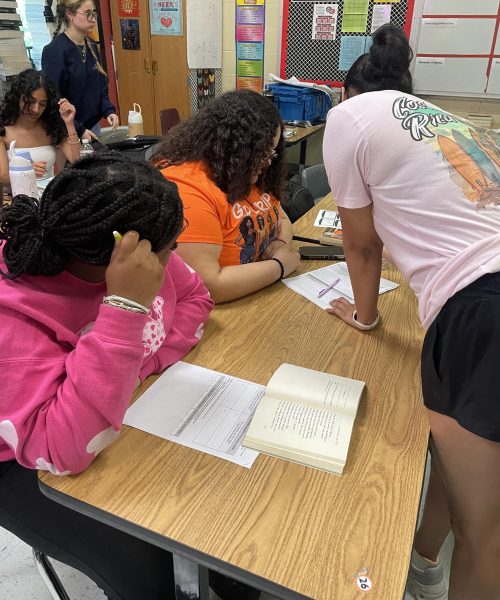Electronic Baby Project Teaches Students About Infant Care
A new parenting class project gives students an insight into what it really feels like to tare care of a newborn.
Junior Kendra Duarte said that the experience with the electronic baby was truly eye-opening. “I’m definitely not ready,” she said.
Having to care, feed, and change a baby is a huge responsibility–one that most students have very little experience with–however, the students enrolled in Dunbar’s Parenting and Early Childhood Education classes were given a chance to see what taking care of a baby is really like.
“[The babies] give students an experience that is just a tad bit similar to what they may experience with an infant at home,” Family and Consumer Science teacher Mrs. Angel Vowels said.
Students were individually assigned a RealityWorks RealCare Baby, an electronic simulator that cries when it needs something. According to RealityWorks, the goal of RealCare Baby is to show students a glimpse of what it is like to actually have a child.
So what are the similarities between the RealCare Electronic Baby and a real living baby?
For one, to make the baby stop crying students had to scan a bracelet similar to those used at amusement parks. When the bracelet was held near the baby, the computer was able to recognize the student who then had to feed, change, burp, or coddle the baby. Once the baby’s needs are met, it stops crying.
They also had to treat the babies gently.
Mrs. Vowels instructed students to remember that holding a doll is very different from holding a real baby.
“If you accidentally drop the baby, or hold it by its arm or something, it cries,” sophomore Caroline Devine said.
Although caring for the doll as if it were a real baby is the whole point of the project, taking care of a baby means more than just holding them the right way.
Before students take their baby home, they have to learn about the finances of raising a child. Many are surprised to find out how expensive a box of diapers or a package of formula can be.
“It was interesting to see the amount of money that just basic things like diapers and formula costs,” sophomore Victoria Lewis said.
And this doesn’t even compare to the total cost of the other necessities for a baby. As listed on a parenting worksheet that students completed, on average, it costs $1288.65 per month for a baby, and this is not including doctor’s fees.
Many students agreed after the experience that they are not ready to properly care for a child.
“At this age, I am not ready for a child financially or time-wise,” sophomore Peyton Bruce said. “Taking home the baby was exciting in all, but definitely showed me, at this time in my life, I cannot handle that responsibility.”

Hi, my name is Logan Justice and this year one of the four Editors-in-Chief. This is my third year being part of PLD Lamplighter and I am a senior. I have...




























